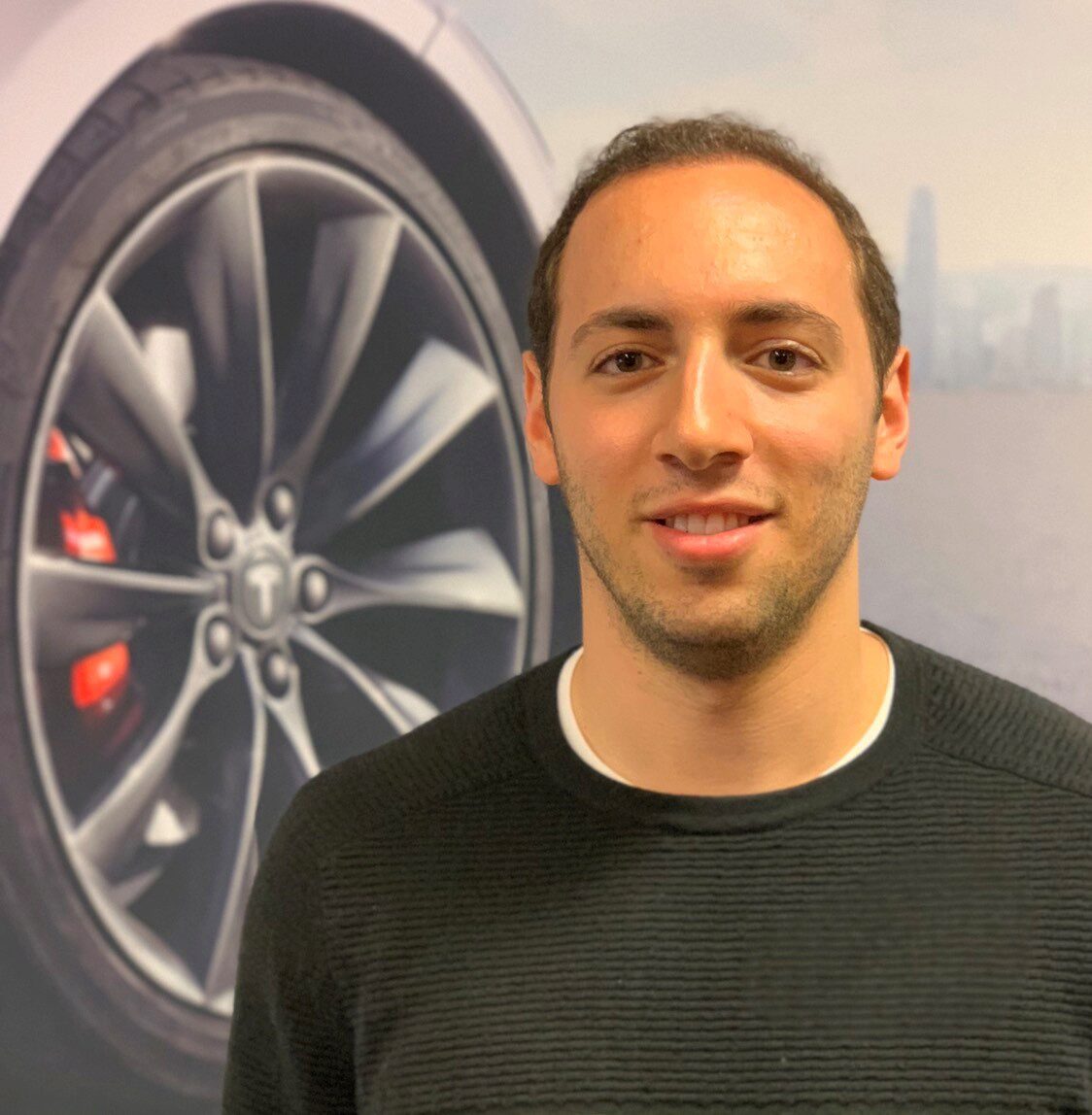Woodruff School alum Mohamed Nasr discusses working for Tesla, his involvement with the new Full Self-Driving computer and his time at Tech.

Q: Tell us a little about yourself.
A: I attended Tech from August 2010 – August 2016 and received my B.S. and M.S. in Mechanical Engineering during that time. Currently I work for Tesla and have spent the last year working on the thermal design for the new Full Self-Driving (FSD) computer.
Q: How long have you worked for Tesla?
A: I have worked for Tesla for about a year and a half.
Q: Can you tell us more about your involvement with the thermal design for the new FSD computer? What was a typical day like for you?
A: My role varied depending on the stage of the project. The beginning involved running CFD simulations and analysis to optimize the thermal design from performance, reliability and cost standpoints. The next stage involved characterizing performance and reliability of prototypes in the lab and making design adjustments to improve the performance. The final stage involved extensive testing of production parts on the actual FSD computer’s electronics in the lab and in the field. To summarize, a typical day went from analysis in office, to characterization testing in lab, to installing the computer in actual cars and testing them in different environments.
Q: How does it feel to be a part of the creation of a FSD computer?
A: From a technical standpoint, it was exciting to work on cooling such a powerful computer that must survive automotive reliability specs. It’s also an ongoing insightful experience to work closely with the cross-functional teams that interact with the FSD computer. I’m happy to finally see the FSD computer on the production line as it gets assembled in vehicles and also monitor the continuous evolution of the computer’s capability through software updates.
Q: How did your time at Georgia Tech prepare you for this work?
A: Beyond the education in first principles and time management through coursework, the interactions with students and academic faculty at Georgia Tech was the best preparation. The time spent exchanging ideas and learning from motivated peers/mentors was a constant driving force to expand intellectual boundaries and creativity. I’m grateful to have worked with a brilliant team of professors and students during my graduate research who taught me to ambitiously tackle complex engineering problems and find creative solutions through teamwork.
Q: What were you involved in as a Tech student?
A: As a graduate student, I was a research assistant in Dr. Andrei Fedorov’s MISC lab studying two-phase convective cooling of high heat flux electronics. This experience helped me gain valuable thermal engineering skills which are used regularly at work. As an undergraduate student, I participated in the co-op program, undergraduate research and the Water Polo club.
Q: What’s next for you?
A: My current focus is on validating cooling solutions for audio and camera electronics in the upcoming Model Y platform. I am also working on FSD computer cooling design for future platforms.
Q: Do you have any advice for current students?
A: Get involved early with internships/co-op programs and research. Also take advantage of engineering organizations on campus like the solar racing team, GT motor sports, etc. It’s worth it to make time for these activities during the rigorous academic workload because they are golden opportunities to learn about real world engineering and help you find your passion early.
